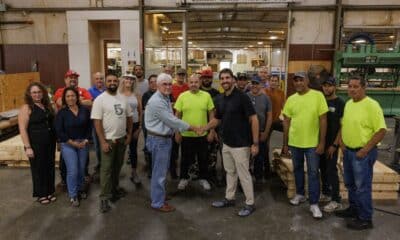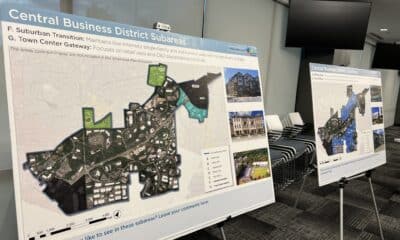Sports
Q & A: The Strong Comeback of Autumn Clark (article)
Published
3 years agoon
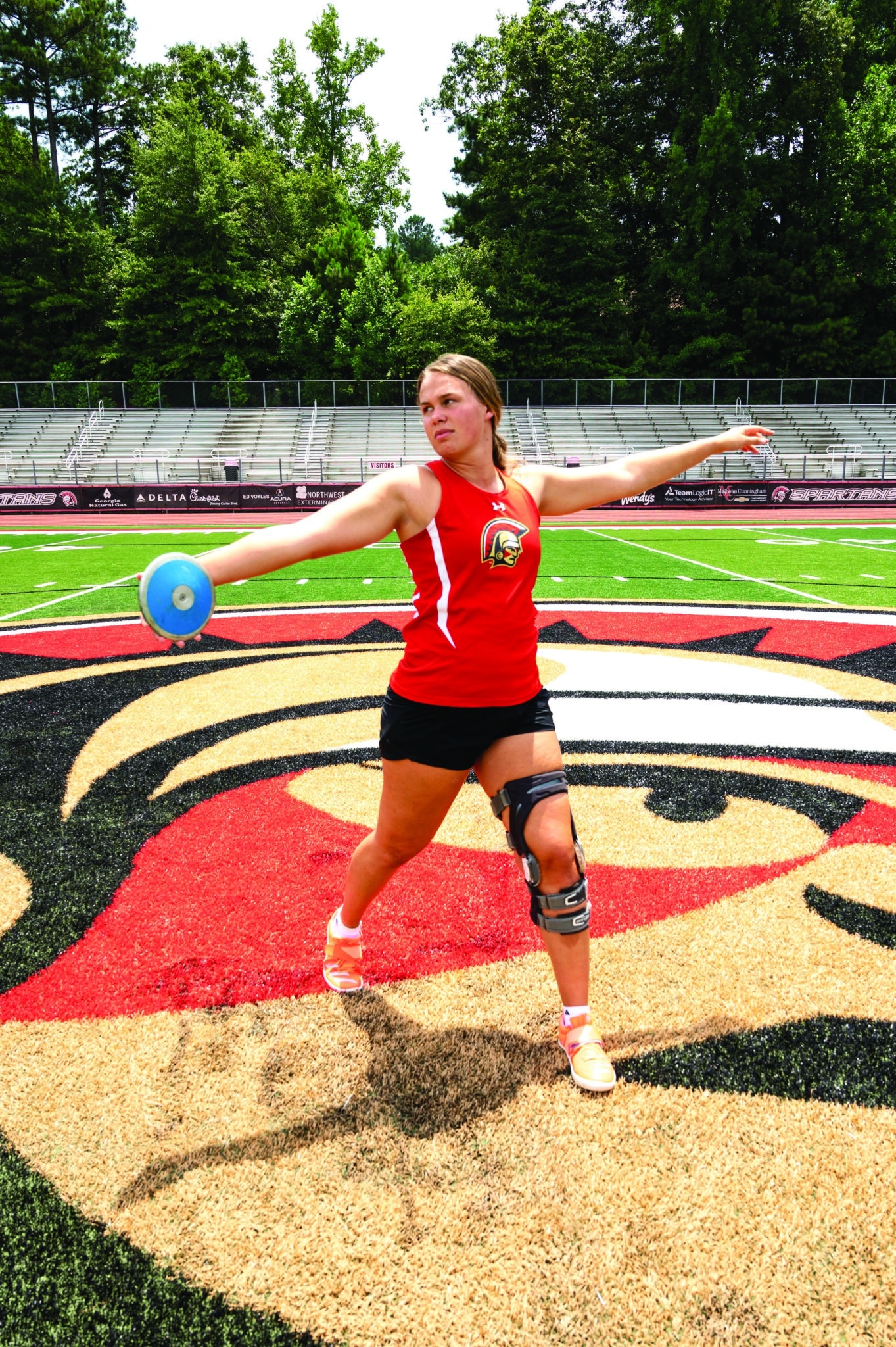
Photos by George Hunter.
Autumn Clark, a student at Greater Atlanta Christian School (GAC), is a gifted athlete who has worked tenaciously to develop her talents. More than a year ago, she suffered an injury which sidelined her for a while — but not for long. She powered through her rehab and had returned stronger and more determined than ever.
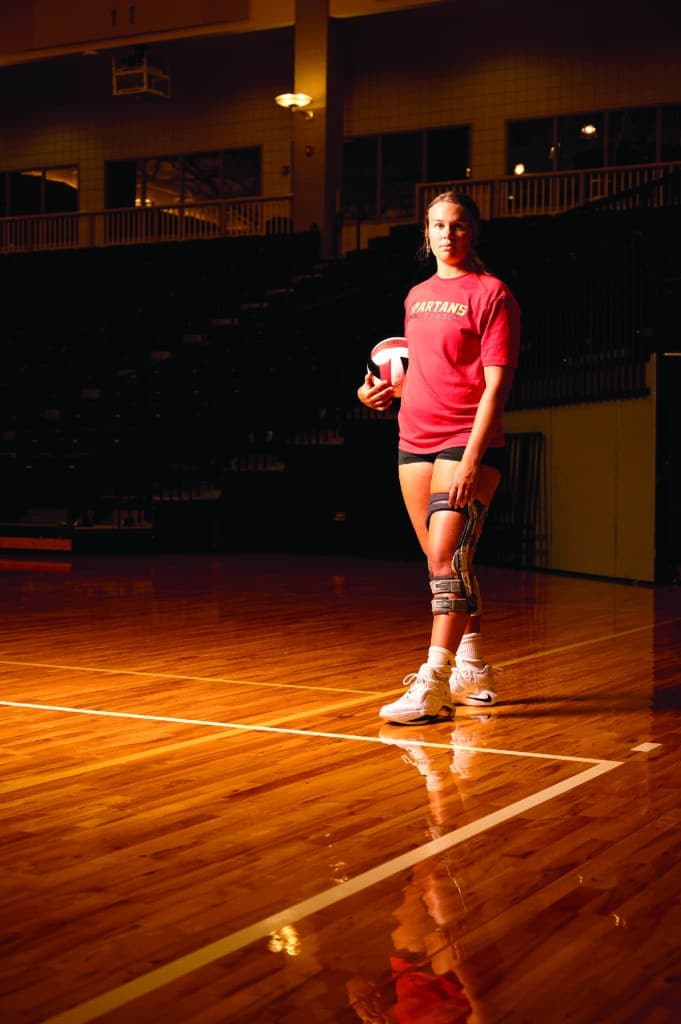
Peachtree Corners Magazine (PCM) connected with Autumn to discuss her athletic commitments, her recovery process and what she’s looking forward to in her bright future.
PCM: When did you start having an interest in sports, and specifically volleyball? What drew you to that and when did you realize you had potential?
Autumn: I started Club Volleyball in the spring of my 8th grade year. I didn’t really know much about the sport besides playing it at summer camps at my school. I knew I always liked the sport, so my friend recommended I try out at a club. I tried out for A5 Pure Volleyball Club and made a team. I knew I had potential then because A5 is the #1 ranked volleyball club in the nation, and if I can make a team at A5, I could be successful anywhere.
PCM: We understand you had an injury last October while playing volleyball. What was it and how have you come out of it?
Autumn: On October 1, 2020, we were playing Mill Creek, in the fourth set of the game. I landed wrong on my left leg and instantly collapsed and passed out. The MRI showed that I tore my ACL, tore both the medial and lateral meniscus, tore my MCL and fractured my tibia. I had surgery done at Resurgence Orthopedics by Dr. Morris, and I currently do physical therapy at Advanced Rehabilitation with Evan.
Now in July 2021, I’m able to play volleyball again. In my spring 2021 track season, I began to throw again for track after going to intensive physical therapy three times a week, two hours each session. I was able to place third in State AAA for discus, win my sectionals in track and break a school record, as my coach says, “with one leg.”
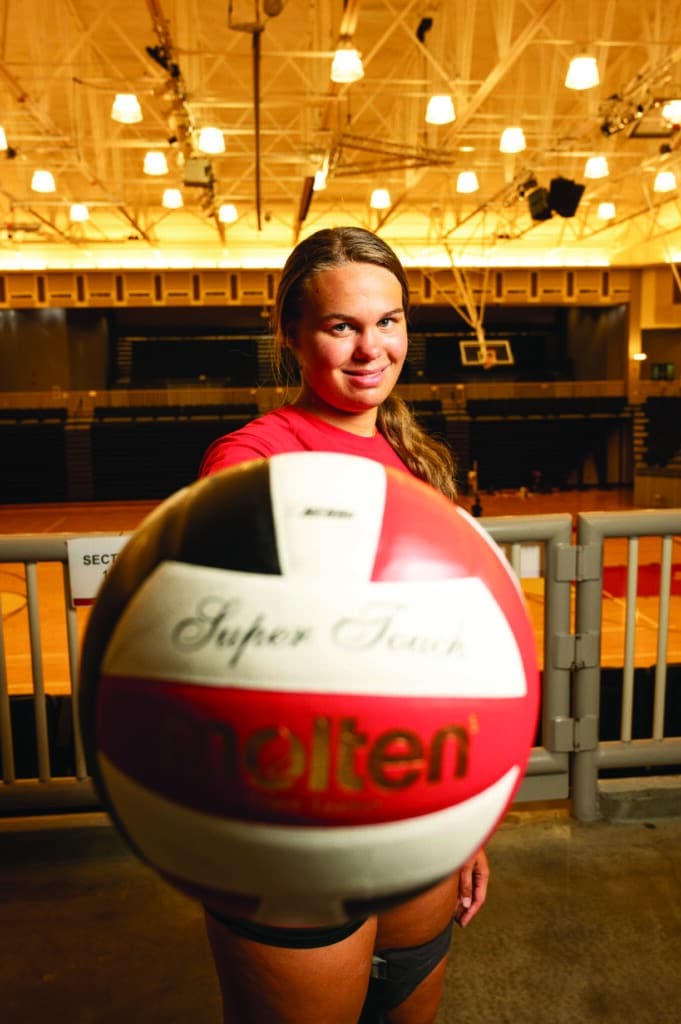
PCM: During that time, did you feel like recovery was going to be challenging? How did you work your way through that? How did you encourage yourself?
Autumn: I definitely didn’t fully comprehend the time commitment this injury required. I told my doctor I would be back in three months, but I was definitely wrong. I had to talk to my parents a lot about my struggles and they helped me get through it emotionally.
I encouraged myself to stay physically fit and to become better by watching volleyball and track meets on TV. I knew recovery would be challenging — and it still is. The worst part is being told that I can’t do something I used to excel at. I encourage myself to rehab and train every day so I can get back to doing the sports I love at an even higher level.
PCM: When were you finally cleared to compete and play?
Autumn: I was cleared to throw in track with a brace in late February. I got cleared to play volleyball in late July.
PCM: So now you play club and school sports? Which ones?
Autumn: I am on the Varsity Track team at GAC, the Varsity volleyball team at GAC and a club track team, Rockslingers. I also play club volleyball at A5 Pure Volleyball.
PCM: Do you have any particularly favorite memories over the past year or two that you’d like to share?
Autumn: My top three favorite memories where when my physical therapist allowed me to walk for the first time, and I started hobbling around the room singing. Second, I couldn’t walk because I had surgery right before my birthday, so my friends threw me a surprise birthday party; otherwise, I wouldn’t have been able to have one. Last, when I was in a wheelchair at school, I learned how to pop a wheelie.
PCM: Your busy day includes club and school sports, weight training and more. When do you have a day off? What do you do? How do you unwind?
Autumn: Every day I usually have about five hours of physical activity. I take a weightlifting class at GAC and weightlift four times a week; when track is in season, I weightlift eight times a week. My days off are typically Friday and Sundays. I use that time to hang out with friends and my family at the lake. I like to unwind by walking my dogs and watching movies.
PCM: How do you handle missing out on activities with friends because of your athletic schedule?
Autumn: I don’t often have to miss hanging out with friends, but when I do, I always try to make up time with them on my days off.
PCM: Volleyball is based on individual athleticism, but also being synced with your teammates. How is discus throwing different for you — and why discus?
Autumn: Discus is very different from volleyball because your stats speak for you, while in volleyball your skill is subjective to the viewers’ eyes. For me, discus is different because all the pressure and performance results lay on my shoulders. I started throwing discus after throwing the football with my dad in the yard. I found a knack for chucking heavy objects a long distance, so my dad recommended me to try throwing in track. I picked it up and never looked back.
PCM: When did you start that? We understand you broke GAC’s school record?
Autumn: I started discus in 8th grade. During my third full season of the sport, I broke GAC’s school discus record, that had stood since 1980, by six feet.
PCM: Now that you’re being recruited by Ivy League schools for track and field, what will you be looking at in making your decision?
Autumn: I am really looking at the academic rigor and social balance available at the schools. I want a school with a school-spirited student body in a city with lots of activity going on around me. I also want to succeed in the classroom while being pushed academically and athletically to allow me to thrive.
PCM: You mentioned that you and your dad (an aerospace engineer who flies for Delta) built your own 3-D printer and a robotic arm. How did that go? What did you end up printing? What did you take away from that experience?
Autumn: My dad and I built a 3D printer in the summer of 2019. With the printer, we were able to print out parts for a robotic robot arm. It worked really well, both the printer and robot arm. From building the printer, I became interested in the art of 3D printing and did some research on bio-printing, which is the printing of human stem cells into human parts, such as ear cartilage, all from a 3D printer. I published a paper on bio-printing in a STEM magazine, Font Femme.
PCM: Academically speaking, do you want to get into Pre-med? What’s your favorite science subject and why? And ultimately, what are your educational and career goals?
Autumn: My goal is to ultimately go Pre-med. I found my love for science in 7th grade when I dissected a frog. I was so mesmerized by the concept of anatomy that I now want to become a surgeon, possibly in cardiac or orthopedic surgery. My current favorite subject is chemistry. I love learning about what elements make up the world we live in and how we interact with them.
PCM: What is the typical “day in the life” of Autumn Clark?
Autumn: On a school day in the spring, I like to get up early and study in the library before school starts. I wake up around 6:45 a.m. and drive to school, which is about 25 minutes away. I study in the library from 7:30 until school starts at 8:30 and I head to class. I had eight classes this past year.
My first class was Honors Pre-Calculus, a class I really enjoyed because of the rigor and critical thinking. Second period was AP Chemistry; it was a very small class, so it was nice to talk in small groups with my classmates. We typically had labs once a week. Third period was Honors Latin. I got to take a break from the complicated English language and learn about Latin origin and history.
Fourth period was AP Language and Composition; in this class, we wrote a ton of essays. Then I’d go to lunch. Three times a week during lunch, I’d go to the athletic trainer at GAC so he could evaluate how my rehab was going for my ACL.
Fifth period was AP US History; it’s a lecture-based class. Sixth period, I had a study hall, where I’d be able to knock out a lot of my homework. Seventh period was weightlifting class. I try to take this class every year to help me get stronger, and because it gives me a break to unwind during the stressful academic day and get out all my angst. My eighth period class was my Christianity Bible class. This class I take every year as a GAC student; it is very informational.
After school, I’d walk up to the parking lot and talk with my friends for a little bit before track practice. Then I’d head to practice, throw for an hour and a half, then go weightlift for an hour with the team.
After weights, I’d drive over to physical therapy where I’d work out for about two hours. I’d drive to club volleyball practice, which lasts until 10:30 at night, so I’d get home around 11 p.m.
Then I’d work on homework until about 1 a.m. I never stay up past 1 if I can help it, and if I couldn’t finish my homework by then, I’d wake up early and finish at the library at school. Then I’d shower and go to sleep.
A few quick questions about personal preferences
PCM: What is your favorite mealtime?
Autumn: I like dinner the best, mainly because I’m able to eat with my family and talk with them about their day. I also like how dinner itself is so versatile and there are so many options to cook.
PCM: What is your favorite food(s)?
Autumn: My favorite foods are chocolate cake, chocolate milk, steak and guacamole.
PCM: What’s on your playlist?
Autumn: I listen both Pop and Country. I have a ton of Taylor Swift and Camilla Cabello music, as well as a lot of Brett Eldredge and Jason Aldean.
PCM: I understand you skateboard a little with your friends. Any specific move you wish you could do?
Autumn: I want to pop an Air 360. At the moment, I can only land an Air 270.
PCM: Do you have a favorite book or movie genre?
Autumn: My favorite movie and book series is Harry Potter. I really like the action genre.
PCM: Is there anything else you’d like to share? Any advice for other student athletes?
Autumn: My fun fact is that I’m a certified scuba diver. For advice, one of the quotes I’ll always remember my coach saying is “You can teach skills, but you can’t teach work ethic.” Be the player that everyone knows works hard both in the classroom and on the court/field. It will pay off in the long run by building up your character for you to succeed in all aspects of life, and it will get you far in whatever career you choose.
Related
Doing Good
Pickle for Pups Combines Pickleball, Parties and Fun for a Worthy Cause
Published
3 weeks agoon
October 1, 2024
The two-day event aims to raise funds for local dog rescue
Show off your pickleball skills, cheer on the players, meet fellow dog lovers and enjoy the beautiful facility and courts at Life Time Health & Fitness Center in Peachtree Corners at the second annual Pickle for Pups fundraising weekend.
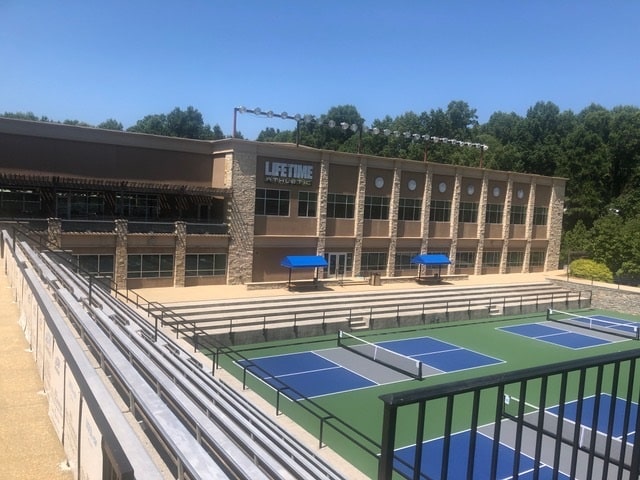
Whether you’re a tournament-level player or a pickleball beginner, this two-day event offers fun for everyone. With exciting games, drills and open play; a Friday night party; Saturday team tournament; and an online raffle, it’s a great way to meet and mingle with other pickleball enthusiasts while supporting the work done by BarkVille Dog Rescue.
Weekend events
The festivities kick off on Friday, November 15 from 6:30 to 9:30 p.m. with an evening of food, drinks, live music and pickleball. The Life Time pros will offer clinics and drills, and other courts will be available for open play. Some of the rescue’s adorable, adoptable dogs will even be onsite for the fun.
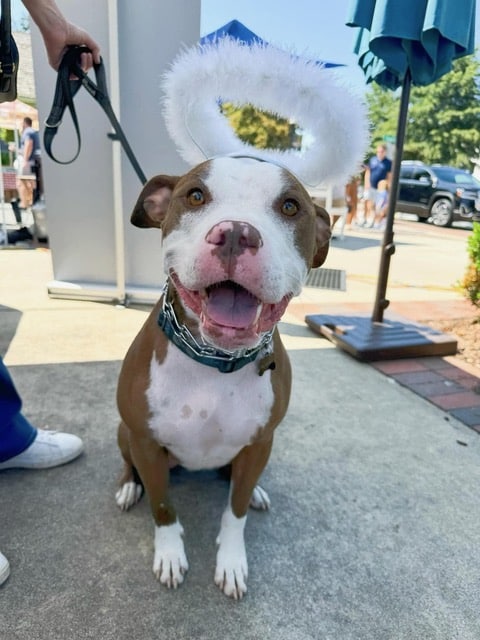
Saturday, November 16 from 10:00 a.m. to 3:00 p.m. will feature the team tournament with two divisions: 3.0/3.5 and 4.0/4.5. Matches will include one men’s line, one women’s line and two mixed lines. The top four teams in each level will advance to the medal round, and medals for the top three teams in each division will be awarded.
Participants can form their own team or ask to be placed on a team at their level.
Team tournament players will receive a boxed lunch, and food will also be available for purchase at the club restaurant.
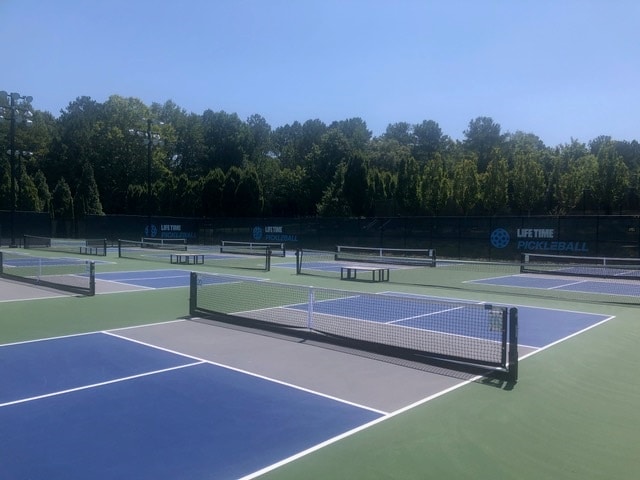
In addition to tournament play, beginners clinics and drills will be offered from 10:00 to 11:30 a.m., and open play will be available for those who can’t commit to the full afternoon but still want to have some pickleball fun.
There will be nine courts available for Friday night and 12 courts for Saturday. All courts are permanent pickleball courts and indoor courts are also available, so the event will be held rain or shine.
Ticket options
The Drinks & Dinks pass includes entrance to the Friday evening party (complete with food, drink, live music and pickleball), as well as entry on Saturday for open play, clinics and drills. Cost: $50.
The Top Dog “Team Up for Rescue” tournament pass is for people playing in the team tournament and includes registration for all of the action on Saturday as well as the Friday night party and an event swag bag. Cost: $75.
Both ticket options allow you to come both days or just one day.
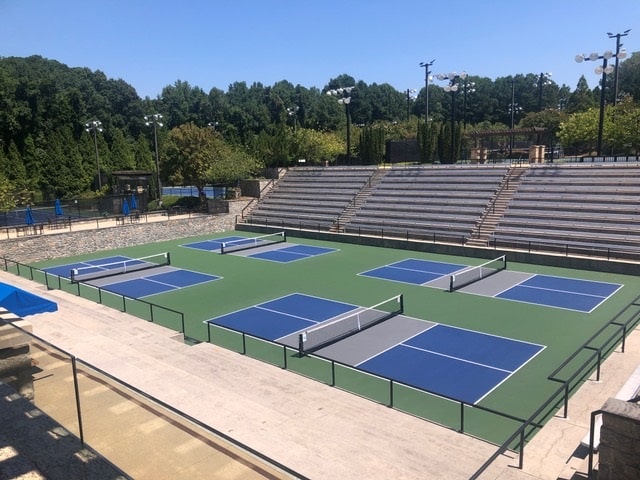
The raffle
Pickle for Pups is also holding a raffle featuring amazing prizes, including an all-inclusive trip for two to the Caribbean, a Zane Navratil ProXR paddle and virtual lesson, gift cards to local restaurants and more.
New prizes will be added weekly leading up to the event. Raffle tickets can be purchased online through November 16. The drawing will be held that day at 3:00 p.m.
Ten raffle entries are $25; 140 entries can be purchased for $200. Other entry packages are available for $50 and $100 as well.
The details
Event dates: November 15-16
Location: Life Time Health Club & Fitness Center at 6350 Courtside Dr. NW, Peachtree Corners, GA
For more information or to make a donation, purchase event tickets or buy raffle entries, visit go.rallyup.com/pickleforpups2024.
For more about BarkVille Dog Rescue, visit barkvilledogrescue.org.
Information about Life Time in Peachtree Corners can be found at lifetime.life/locations/ga/peachtree-corners.
Related
Community
Olympian Jasmine Jones Visits Her Local Alma Mater
Published
4 weeks agoon
September 25, 2024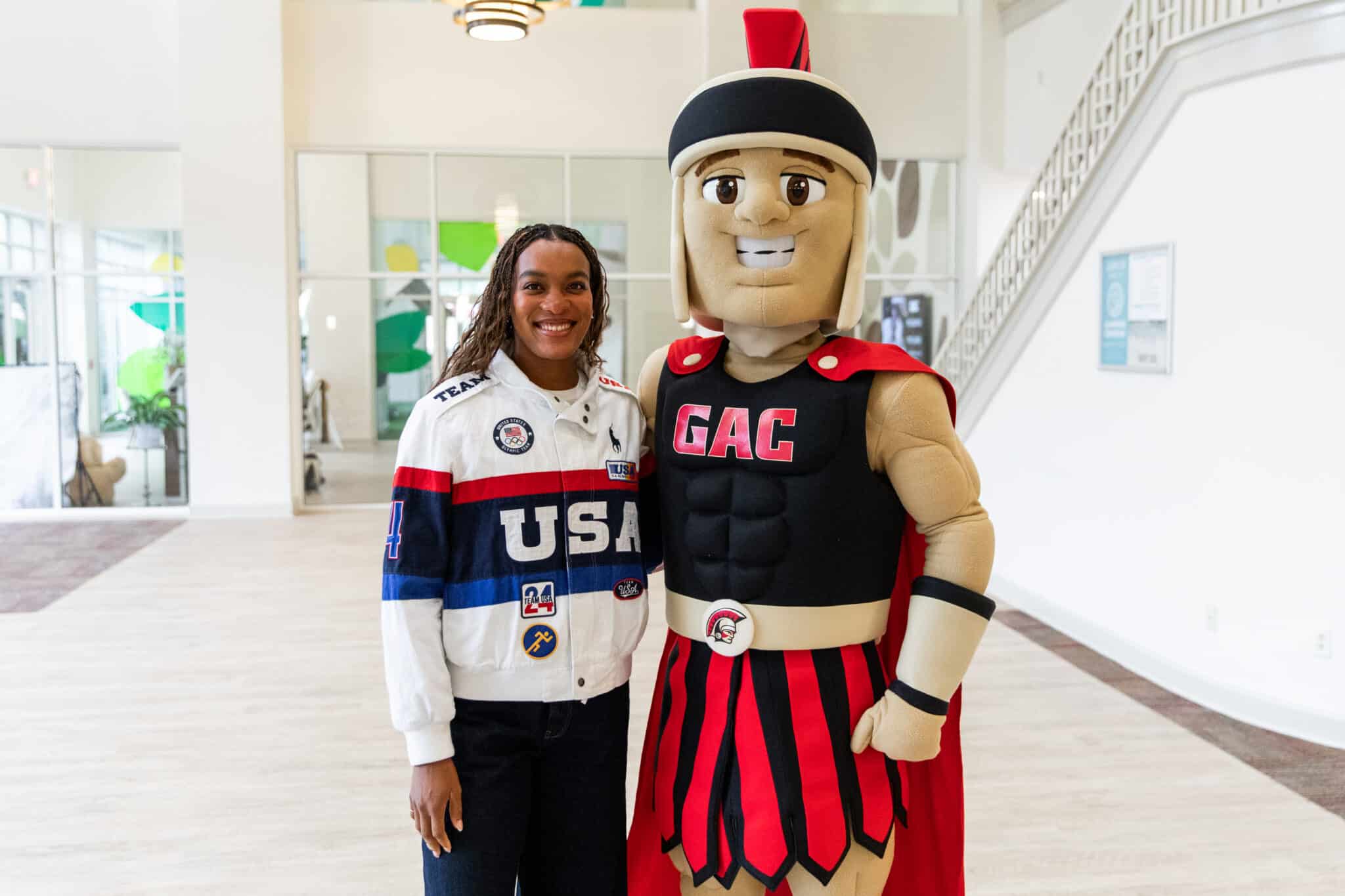
Olympian Jasmine Jones, a standout alumna of Greater Atlanta Christian School (Class of 2020), returned to her alma mater on September 12 to speak to and inspire the next generation of students there.
GAC staff interviewed Jones and also took questions from the students during a Q&A session that included every grade level.
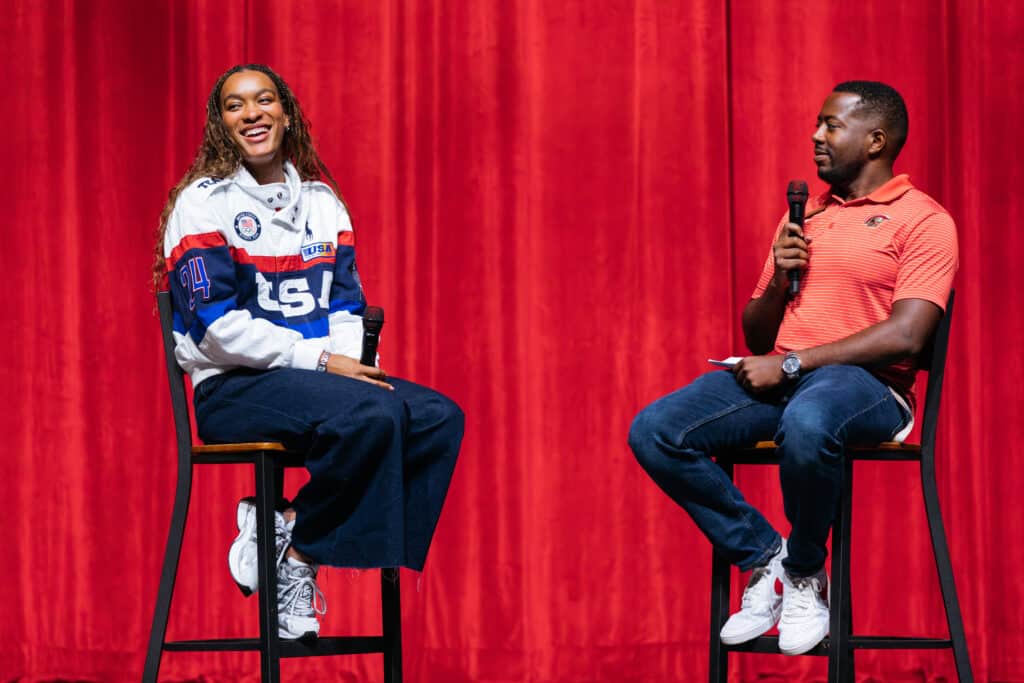
As a member of the U.S. Olympic team and a 12-time Georgia state individual champion during her time at GAC, Jasmine’s visit was a homecoming filled with motivation and reflection. She spoke passionately to the students about the importance of perseverance, goal-setting, and embracing challenges, drawing from her journey from GAC to the University of Southern California and the global stage of the Olympics.
Jones qualified for the Paris Olympics on June 30 and made the U.S. team in women’s 400m hurdles after placing third. She went on to place fourth in the women’s 400m hurdles final at the Paris games.
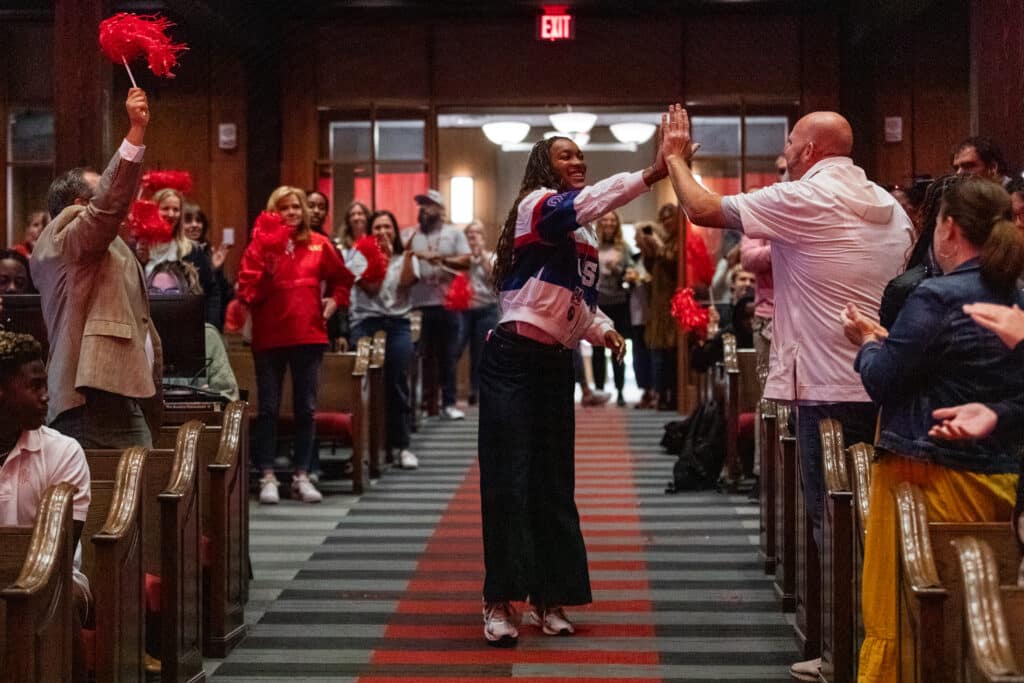
Students and staff at GAC cheered Jones on during the Olympics. And they cheered her again as she took to the school’s stage to address the audience. Before and after the event, Jones posed for photos, gave high-fives and took time connect with some of GAC’s enthusiastic students and faculty.
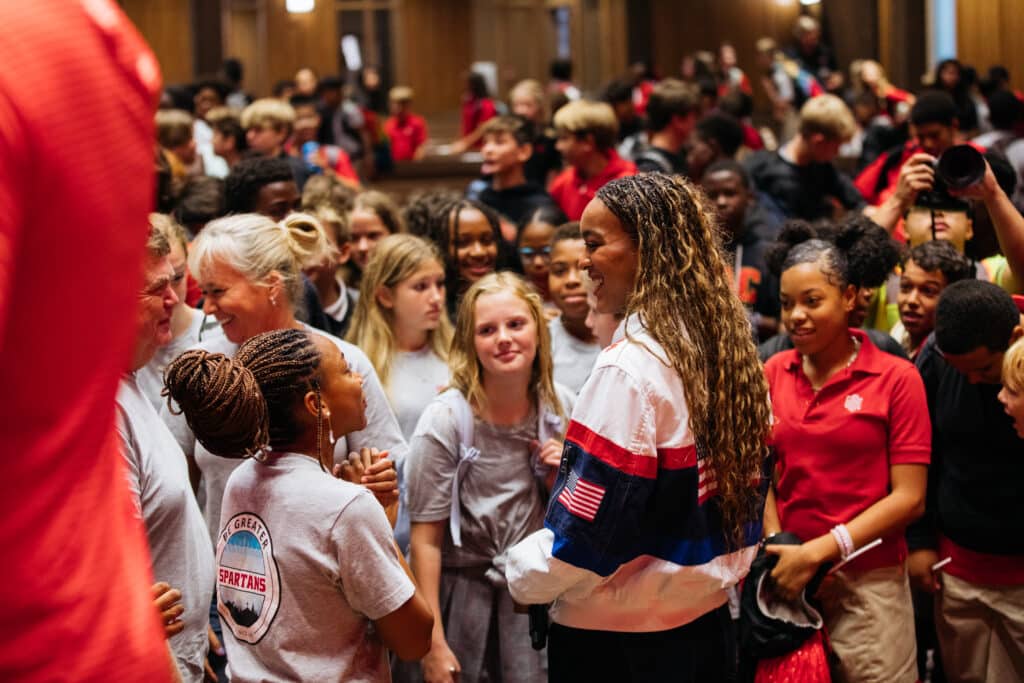
Her words — and her accomplishments — left a powerful impression on the crowd, reminding everyone of the heights that can be achieved with dedication and faith.
For more about GACS, visit greateratlantachristian.org.
Related
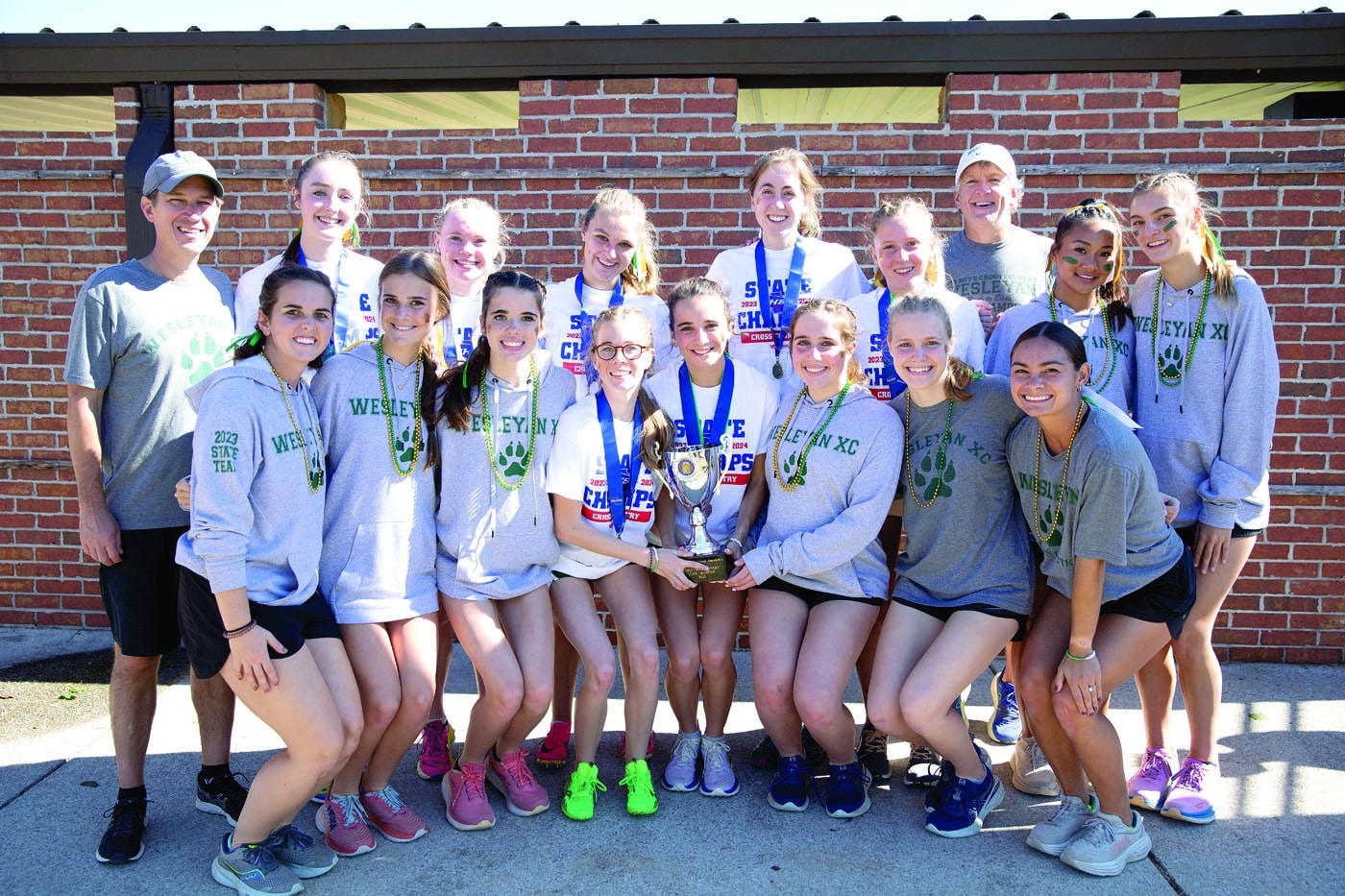
Wesleyan School is known for its faith-based academic excellence, but maybe you didn’t know that the school’s athletic achievements are just as impressive. This year alone, Wesleyan has amassed an astounding nine state championships.
“The Wesleyan School athletic program has been incredibly blessed to enjoy a significant amount of success during the 2023-2024 school year. Winning nine state championships is a credit to our student-athletes, coaches, and parents,” said Chris Cleveland, head of school and assistant coach for the varsity boys basketball team.
Nine state championship titles are the most Wesleyan has ever won in a single school year. But the school’s athletic department is focused on far more besides winning.
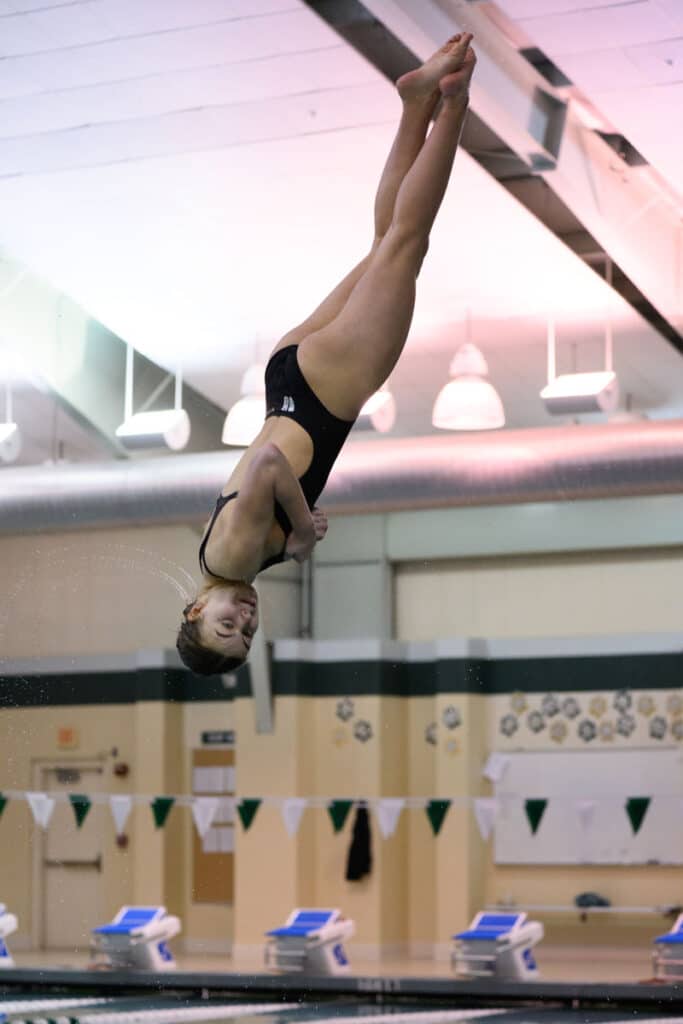
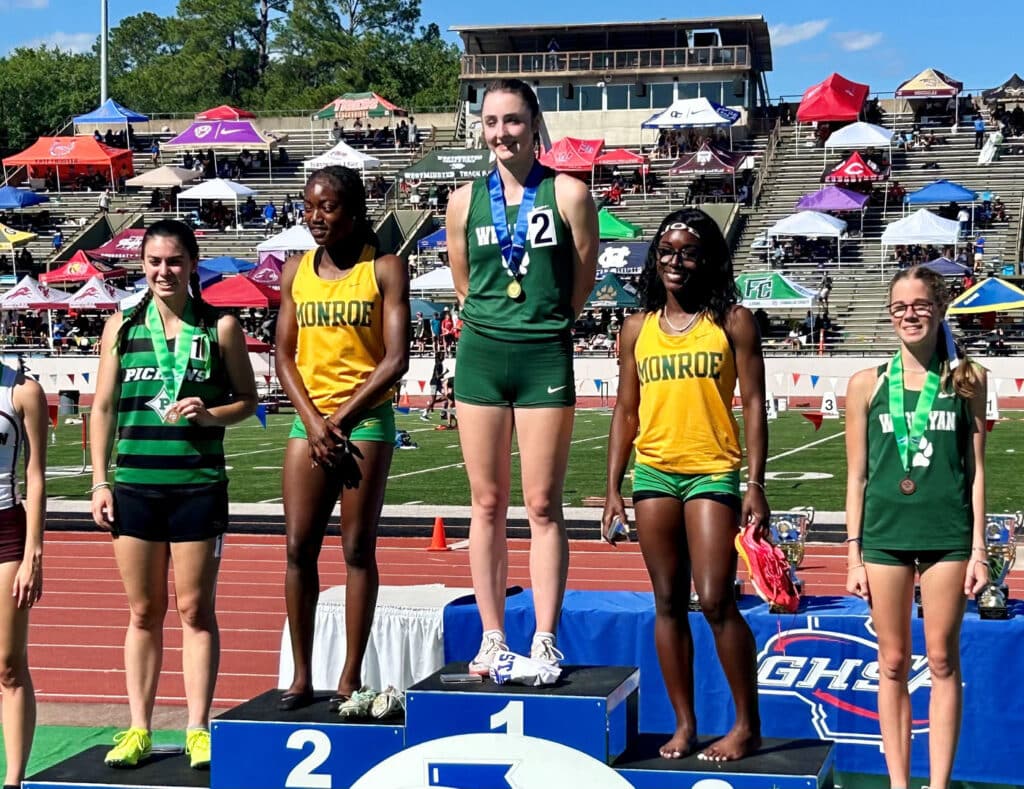
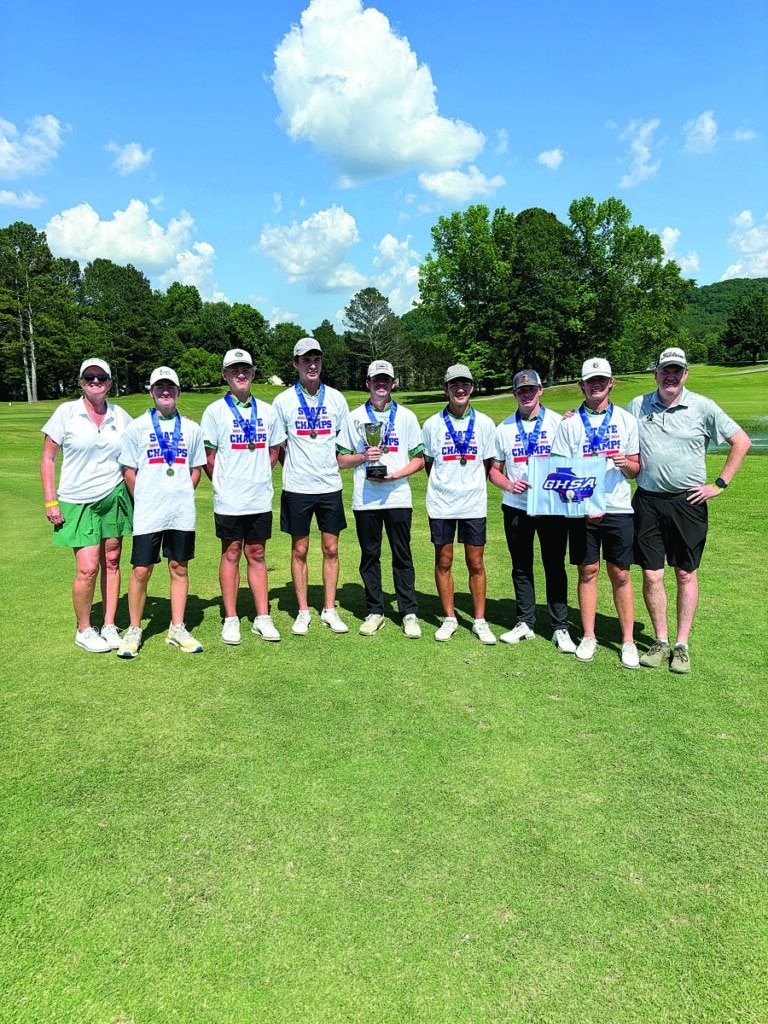
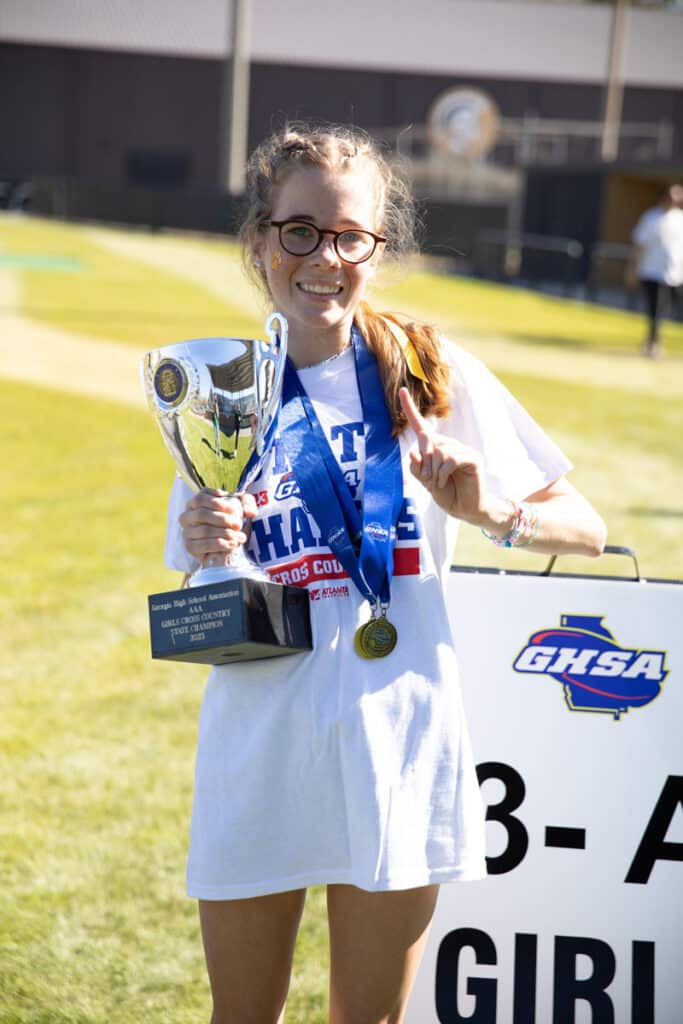
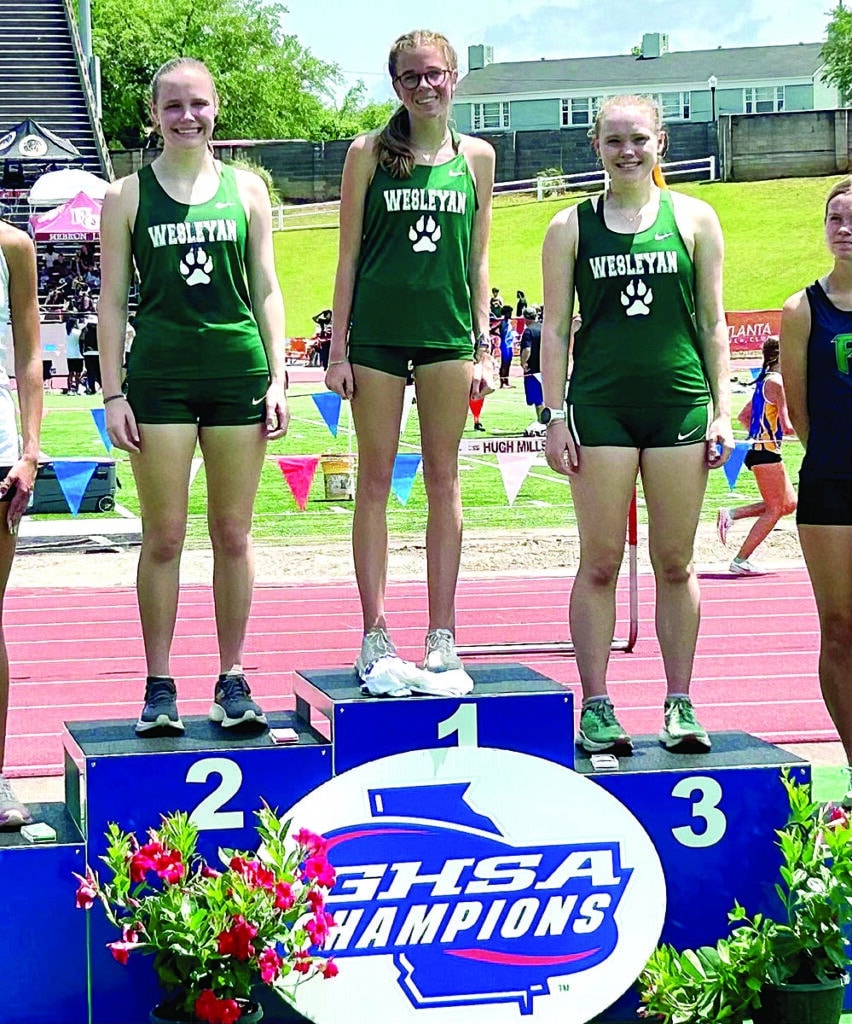
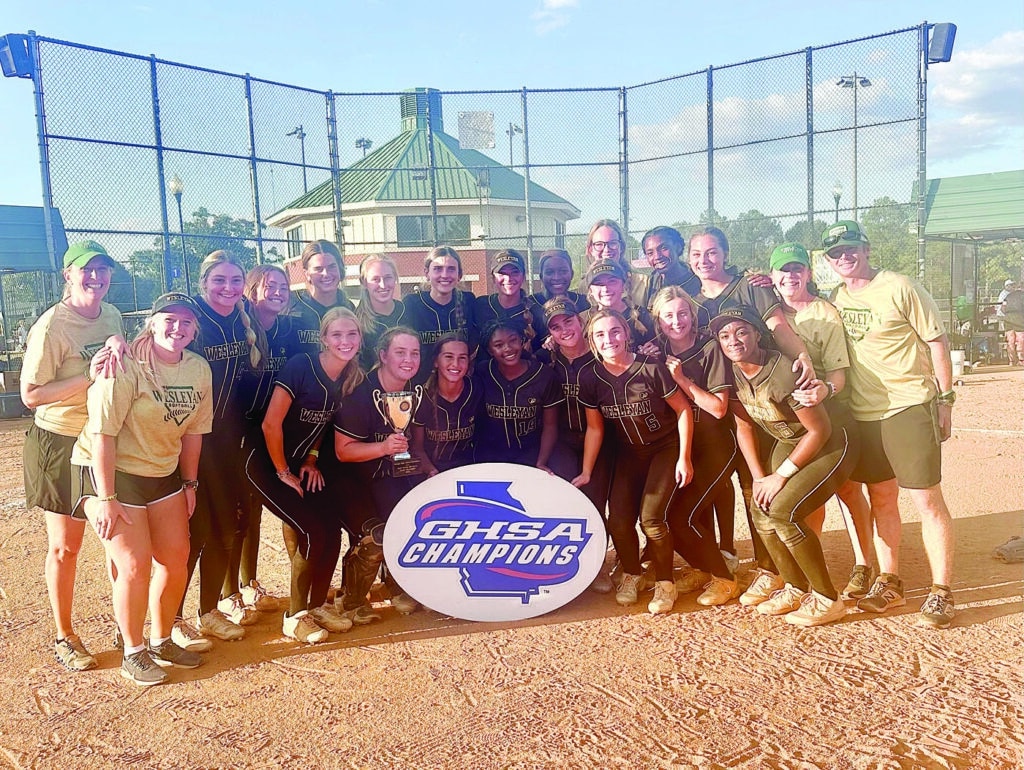
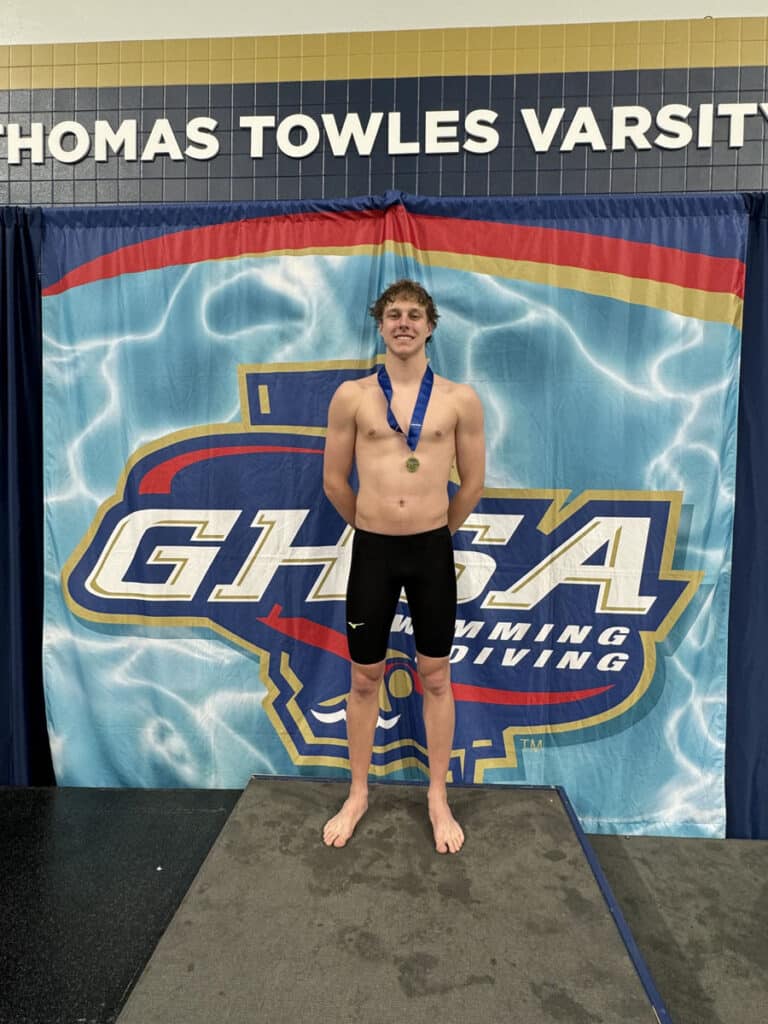
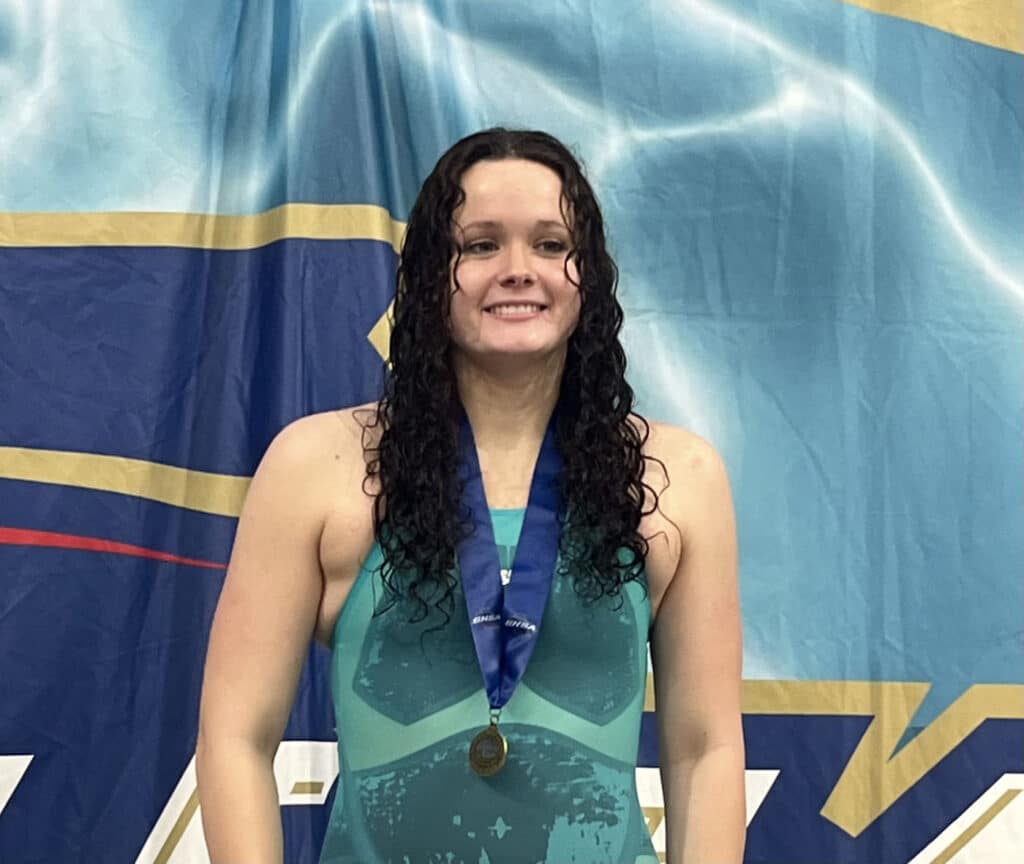
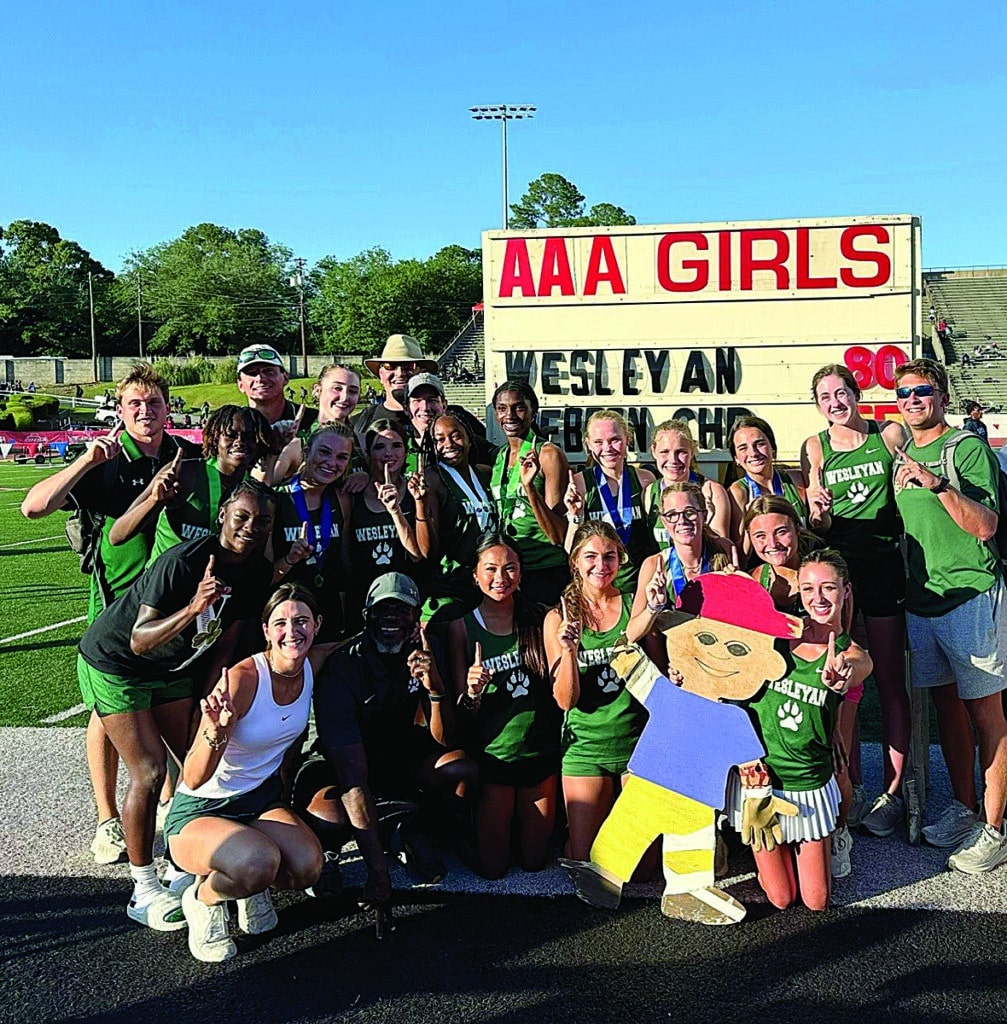
“While winning a state championship is a substantial accomplishment that is worthy of celebration, it is not the sole measure by which we measure the success of a season. It is our greatest desire and prayer that the lives of our students will be transformed due to the investment by our coaches and through the relationships they build with their teammates,” added Cleveland.
After the girls and boys lacrosse teams won their state titles earlier this year, Wesleyan now has a state championship in every sport they field.
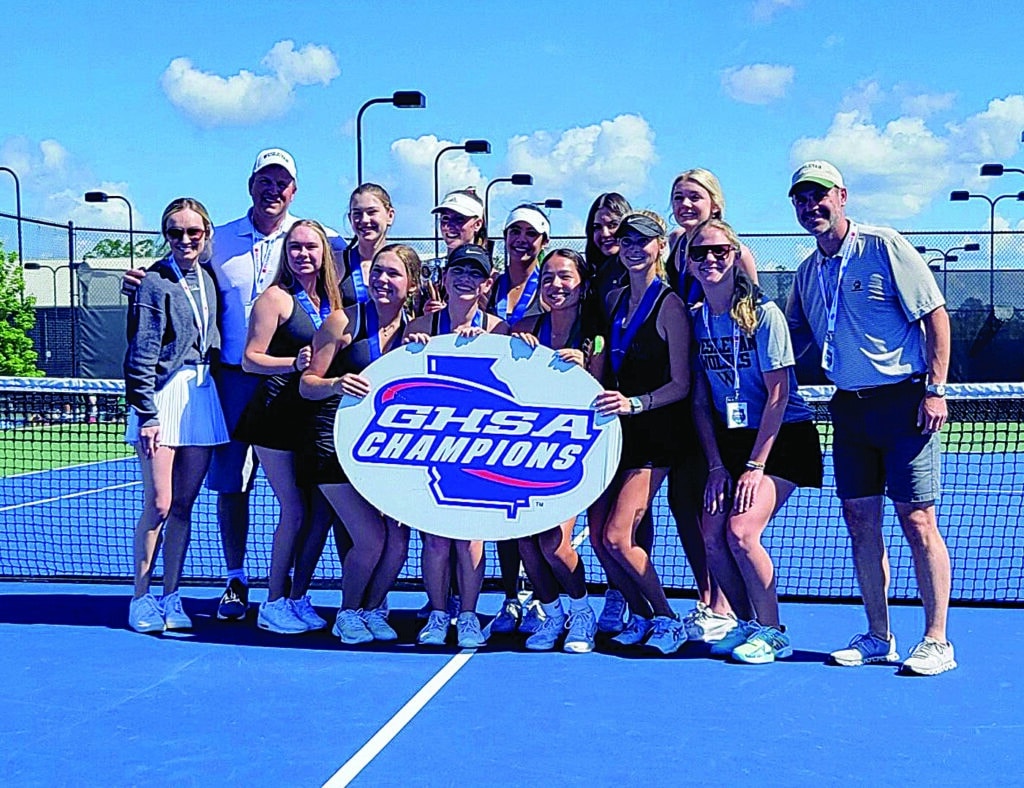
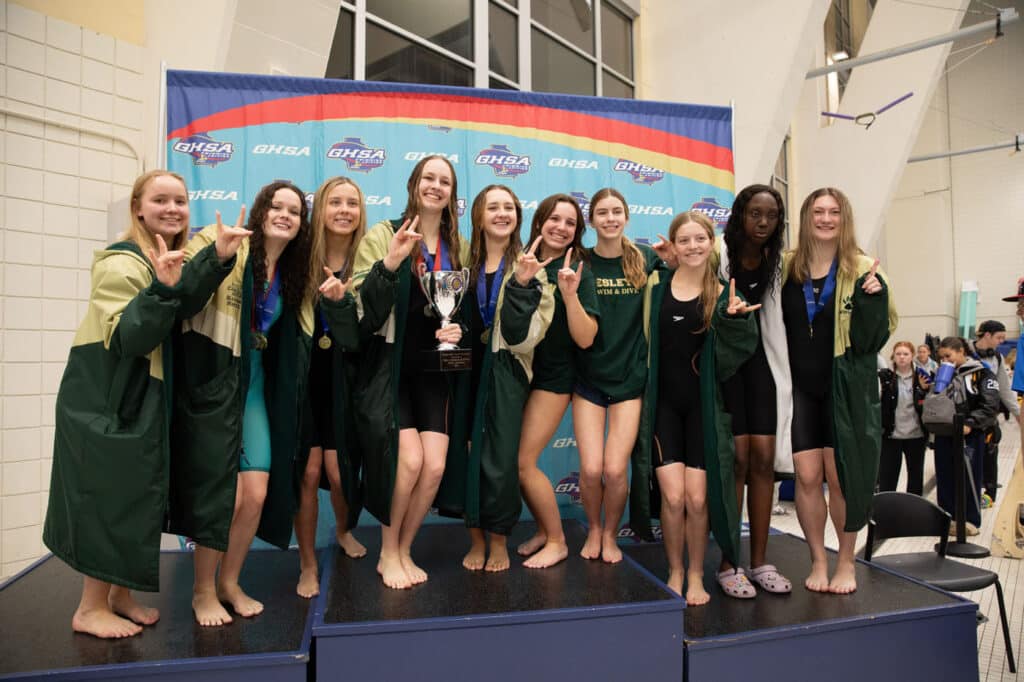
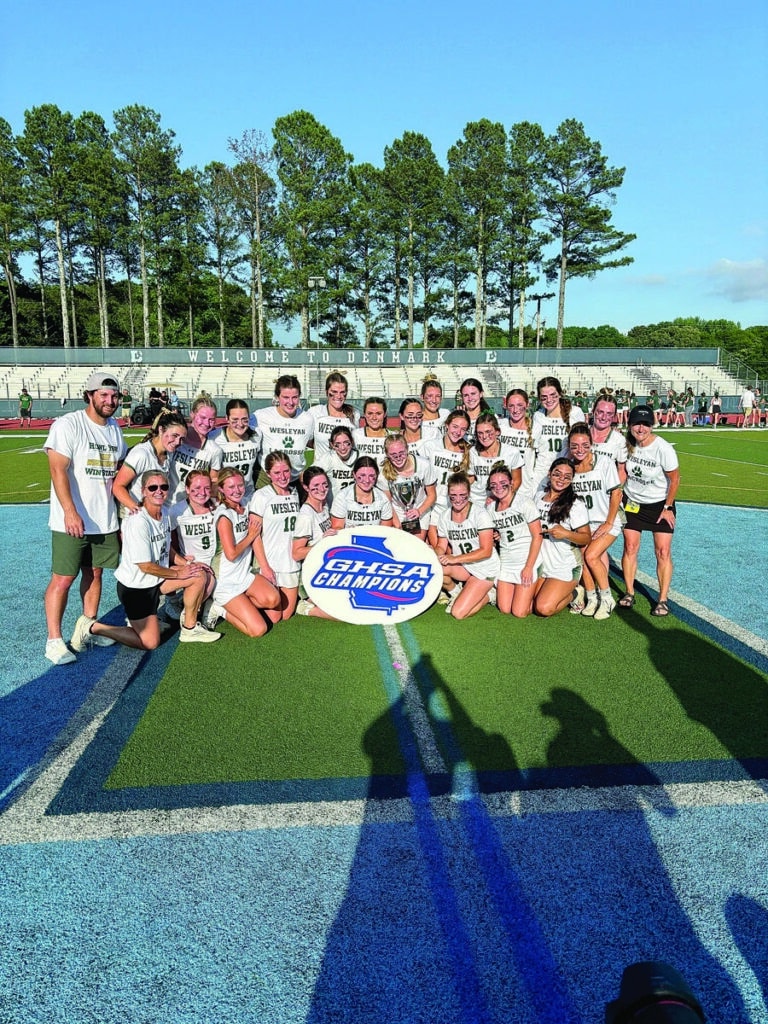
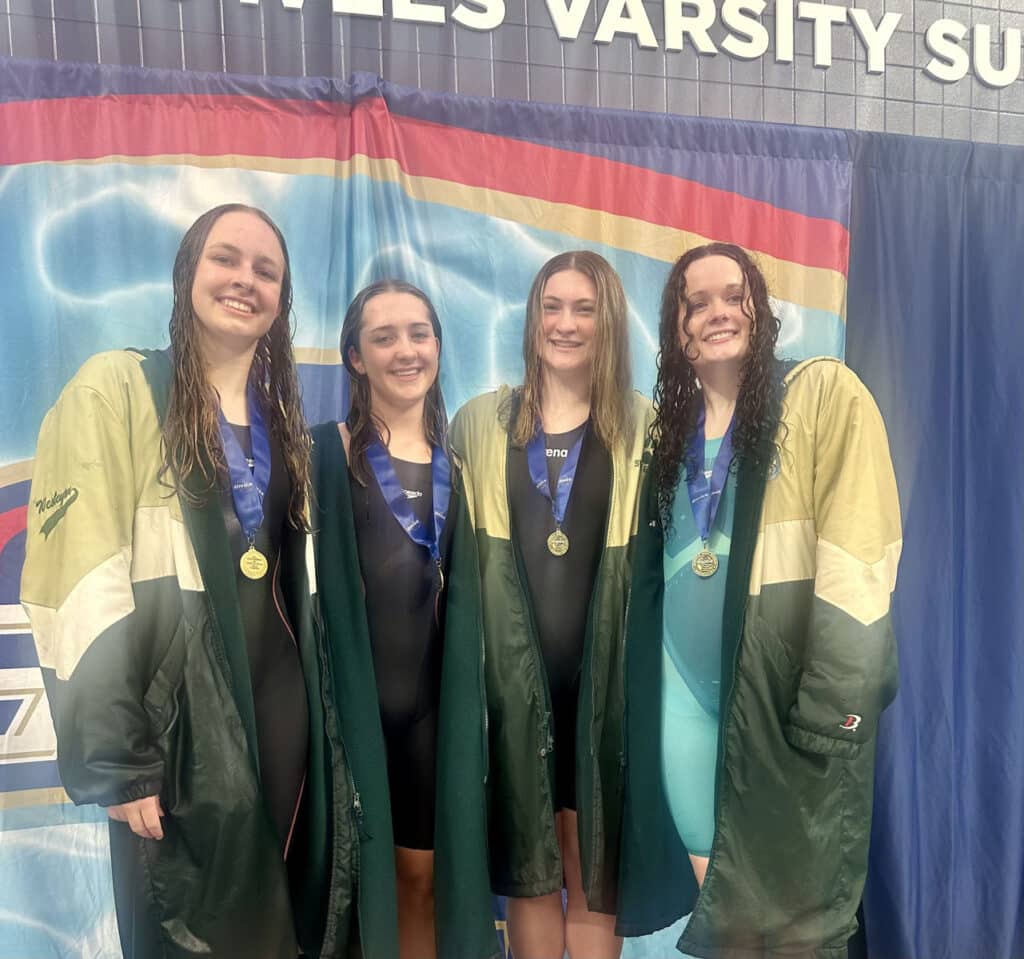
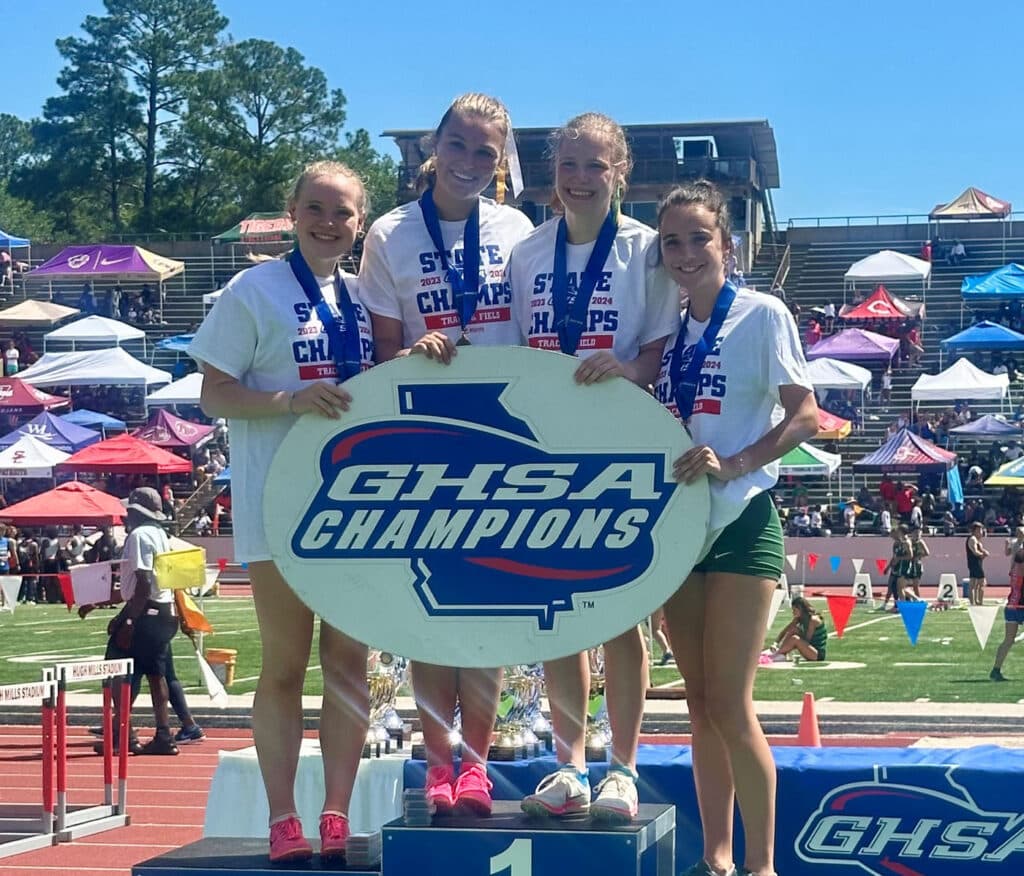
“We are so proud of our student-athletes, coaches, and our entire athletics program. Regardless of the number of state championships in a given year, our goal is to develop young men and young women of character. When recognition like state titles accompanies that objective, it certainly is a lot of fun and a great honor for our entire community,” commented Lacy Gilbert, director of athletics.
Congratulations to all Wesleyan student-athletes, coaches and faculty for this incredible accomplishment.
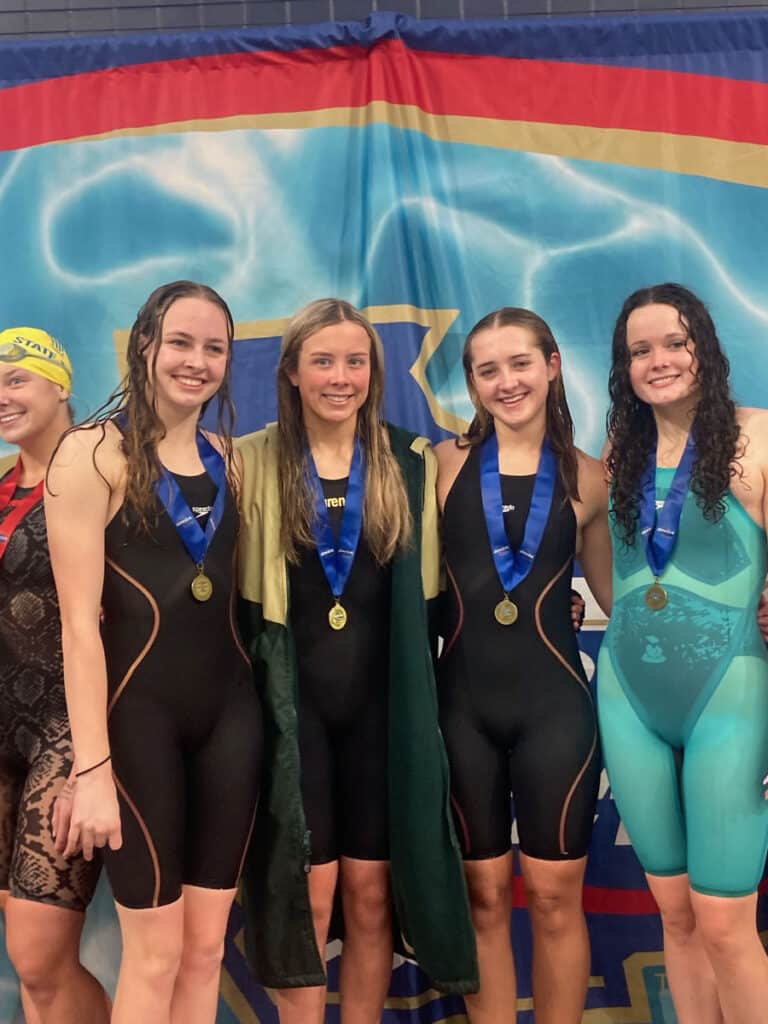
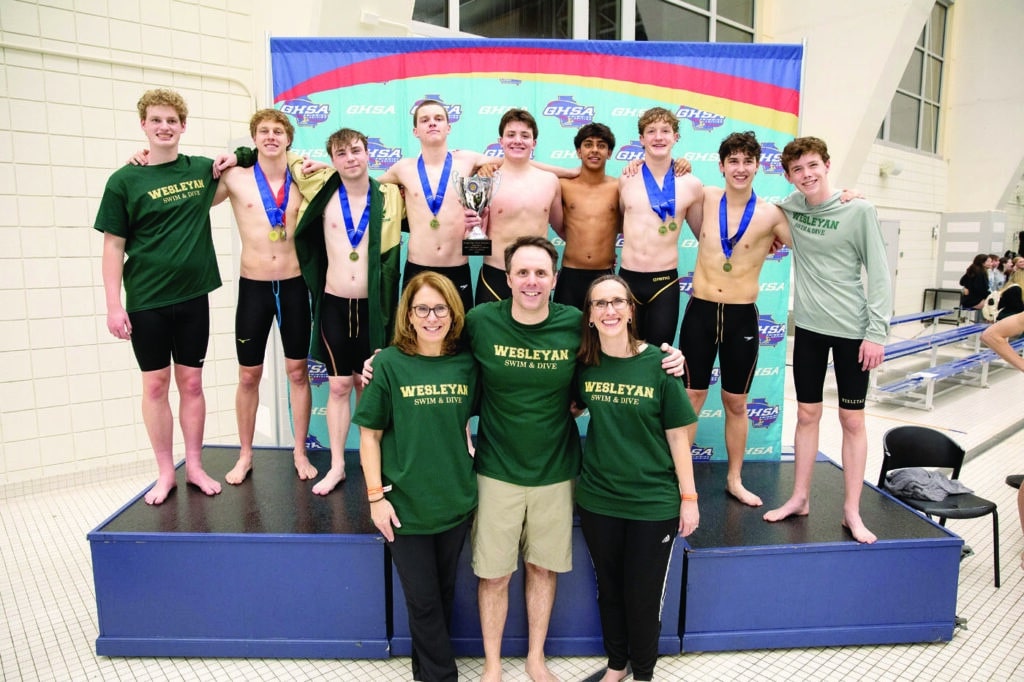
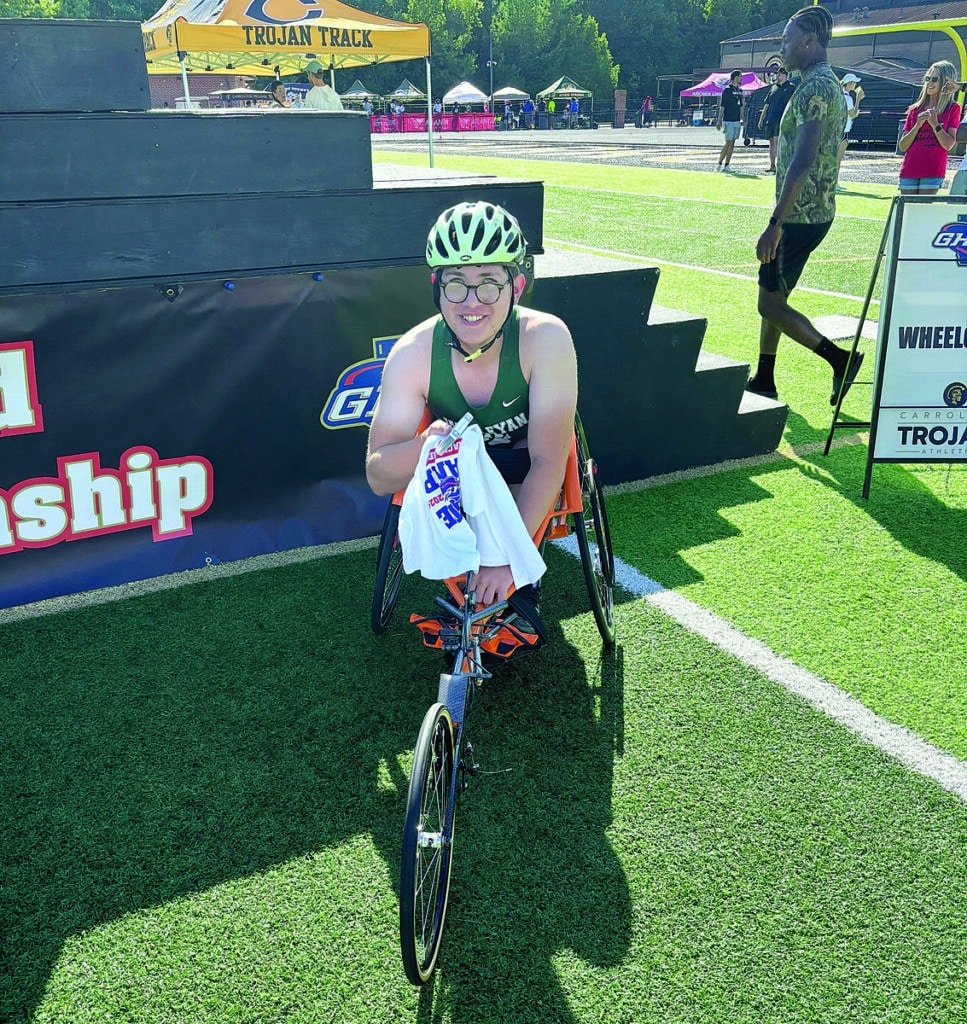
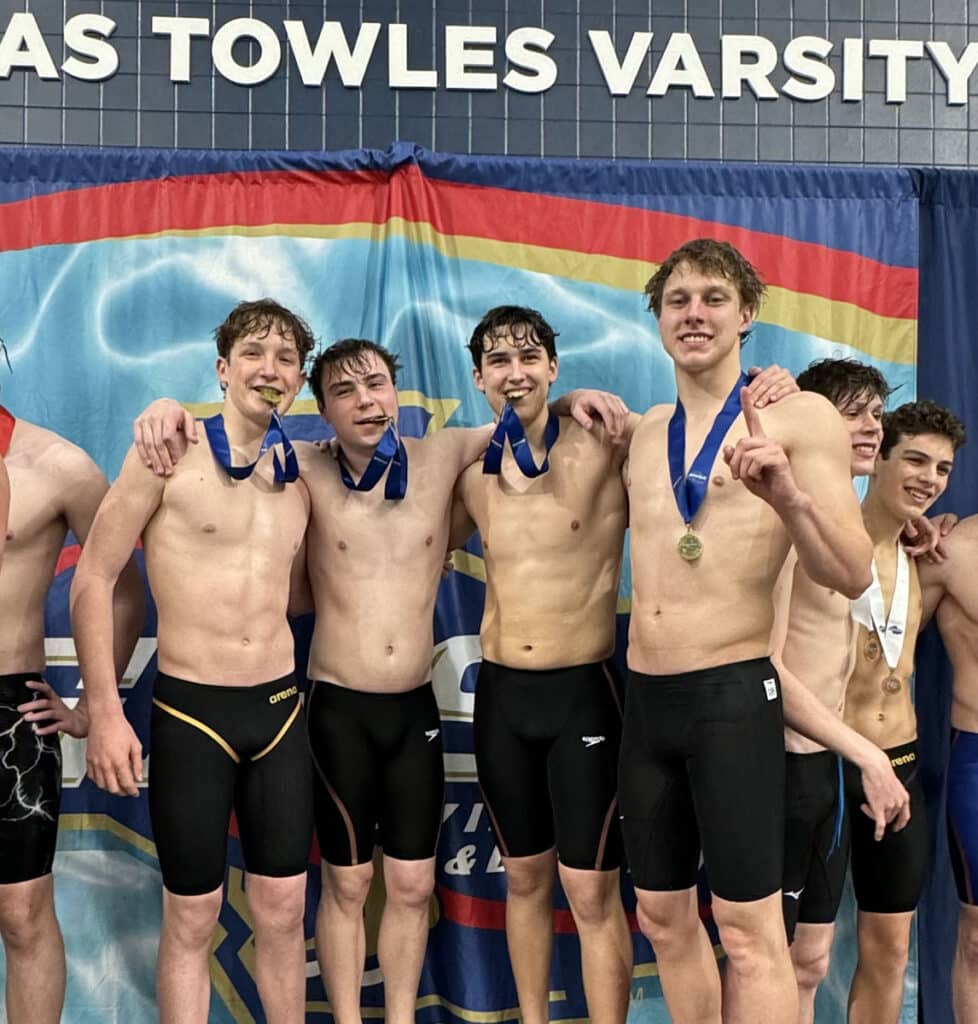
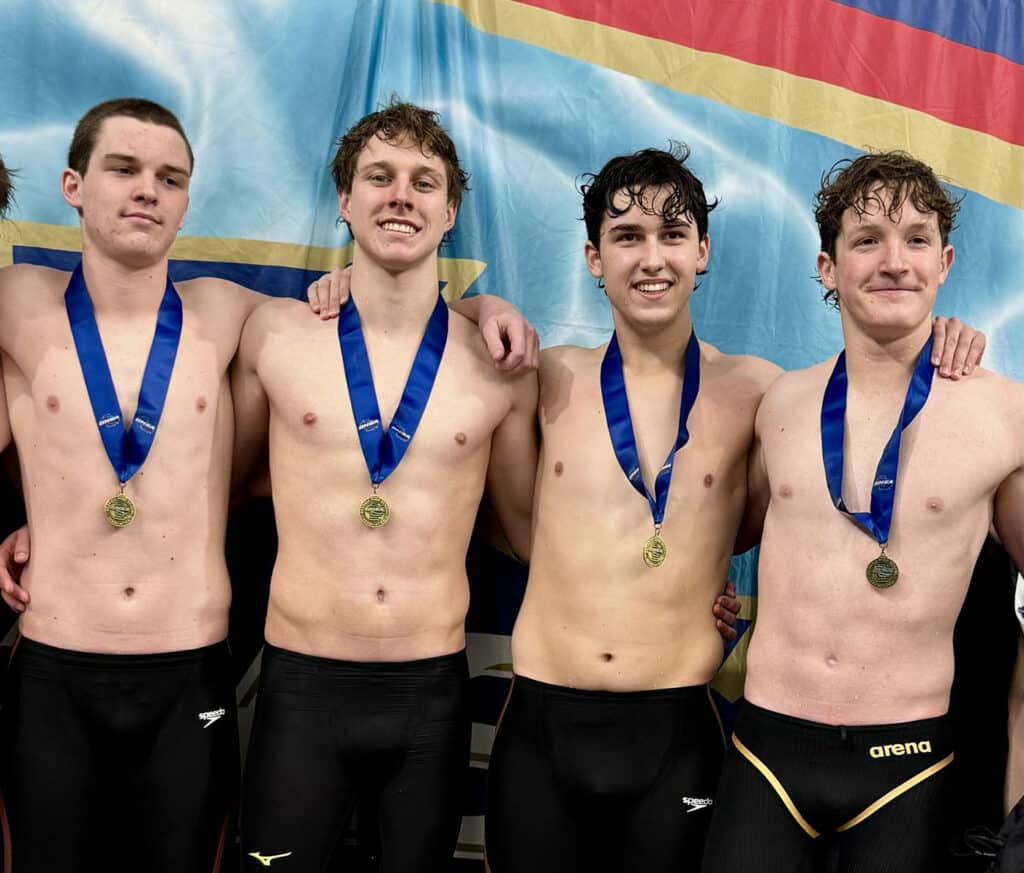
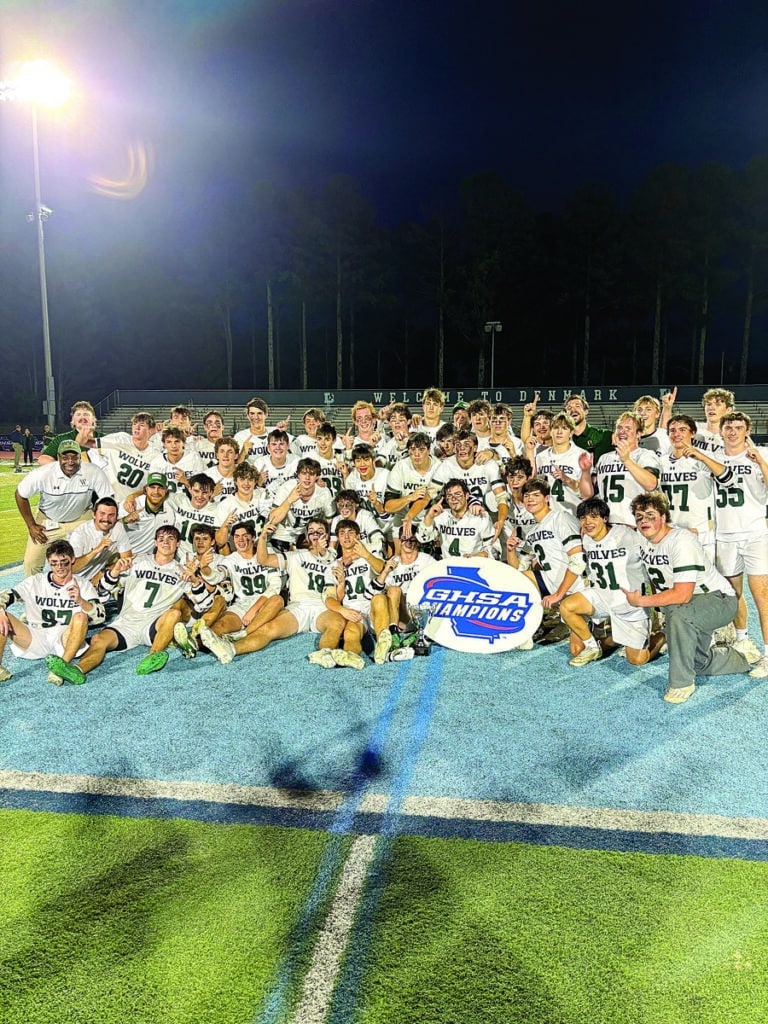
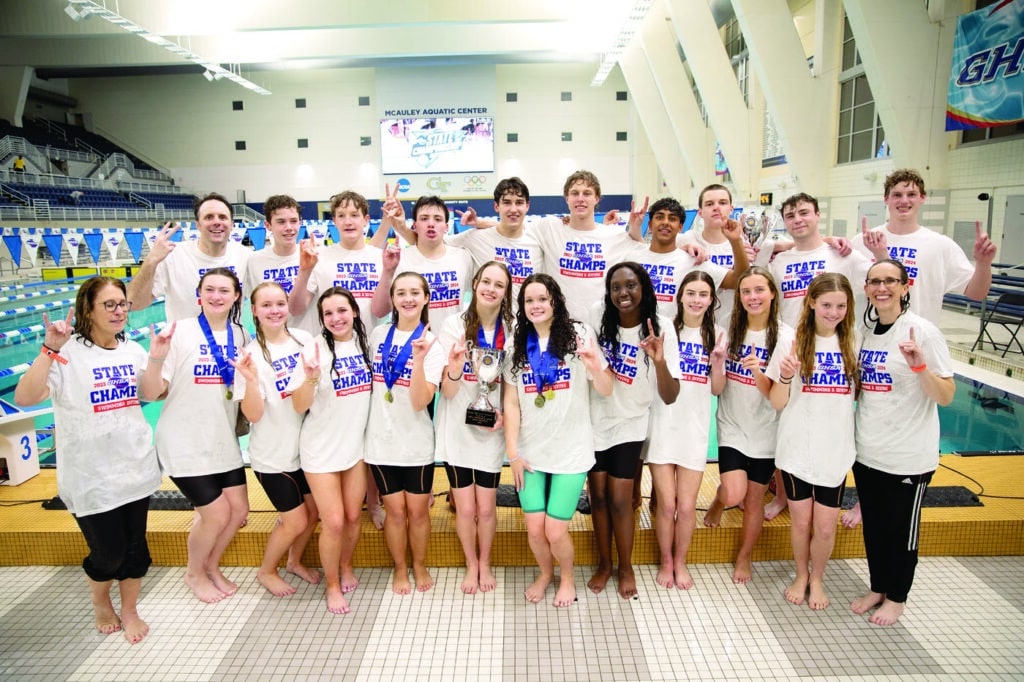
List of team titles:
- Girls Softball
- Girls Cross Country
- Boys Swim & Dive
- Girls Swim & Dive
- Girls Lacrosse
- Boys Lacrosse
- Girls Tennis
- Girls Track & Field
- Boys Golf
List of individual titles:
- Weezie Moore – Girls Cross Country
- Abbey Suits – Dive
- Hattie Wasmuth – Swim: 200 Medley
- Max Perry – Swim: 50 Free
- Ryan Cowart, Jace Neeb, JJ Neeb and Max Perry – Swim: 200 Free Relay
- Ansley Chapman, MC Harrison, Vivian Hosier and Hattie Wasmuth – Swim: 200 free relay
- Ryan Cowart, JJ Neeb, Max Perry and Connor Worgo – Swim: 400 free relay
- Ansley Chapman, Lily Corbitt, Vivian Hosier and Hattie Wasmuth – Swim: 400 free relay
- Weezie Moore – Track & Field: 3,200 meters
- Kyra Brubaker, Ansley Voss, Eva Murphy and Julie Anne Bush – Track & Field: 4 x 800-meter relay
- Anne McSweeney – Track & Field: 800 meters
- Ben Vondrak – Track & Field: Wheelchair 800 meters and 200 meters
Related
Read the Digital Edition
Subscribe
Keep Up With Peachtree Corners News
Join our mailing list to receive the latest news and updates from our team.
You have Successfully Subscribed!

TransPak Acquires Reid Packaging to Expand East Coast Presence

Peachtree Corners City Leaders Engage Residents on Land Use Development

The NOW Massage Opens Peachtree Corners Boutique at The Forum

GCPL Accepting Applications for Next New Start Entrepreneurship Incubator

Ruwa Romman’s Re-Election Bid: Addressing Housing, Taxes and Transportation in Gwinnett [Podcast]

Councilmember Sadd to Host Town Hall Meeting on October 29

Councilmember Sadd to Host Town Hall Meeting on October 29

Ruwa Romman’s Re-Election Bid: Addressing Housing, Taxes and Transportation in Gwinnett [Podcast]

GCPL Accepting Applications for Next New Start Entrepreneurship Incubator

TransPak Acquires Reid Packaging to Expand East Coast Presence

The NOW Massage Opens Peachtree Corners Boutique at The Forum

Peachtree Corners City Leaders Engage Residents on Land Use Development

Pinecrest Academy Named to 2024 AP School Honor Roll

Michael Corbin on School Safety, Teacher Pay and Election Integrity [Podcast]

Light up the Corners [Video]

Capitalist Sage: Business Leadership in Your Community [Podcast]

Cliff Bramble: A Culinary Adventure through Italy

Top 10 Brunch Places in Gwinnett County

A Hunger for Hospitality

THE CORNERS EPISODE 3 – BLAXICAN PART 1

Top 10 Indoor Things To Do This Winter

The ED Hour: What it takes to Remove Barriers from Education

Peachtree Corners Life
Topics and Categories
Trending
-
Business7 days ago
TransPak Acquires Reid Packaging to Expand East Coast Presence
-
Land Use and Development1 week ago
Peachtree Corners City Leaders Engage Residents on Land Use Development
-
Health & Wellness1 week ago
The NOW Massage Opens Peachtree Corners Boutique at The Forum
-
Community4 days ago
GCPL Accepting Applications for Next New Start Entrepreneurship Incubator





